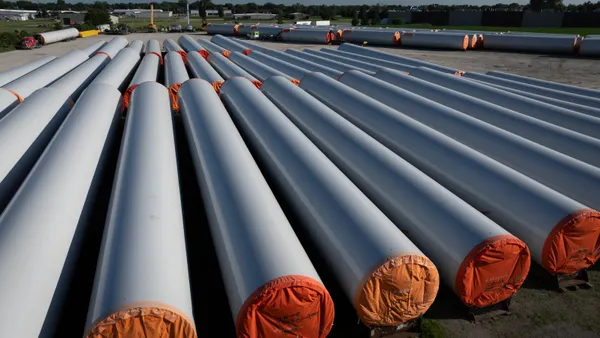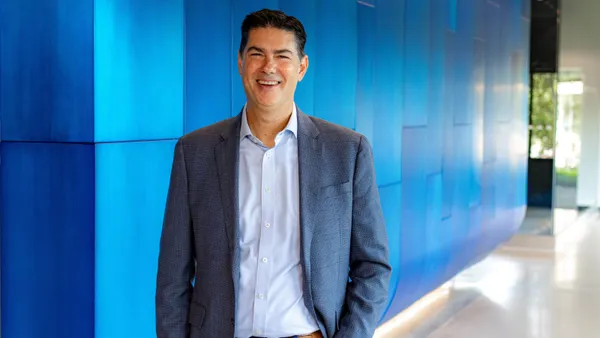Dive Brief:
- Nikola Motor Company has announced that it will build a $1 billion Phoenix-area manufacturing plant to produce its hydrogen-fueled semi-trucks, according to Reuters. The company, The Republic reported, is also moving its headquarters there.
- Nikola said it has received 8,000 advance orders for its new truck model and expects to start production at the 500-acre site in 2021. The company's trucks are expected to compete with an all-electric semi model that Tesla said it would start manufacturing next year.
- A representative from the Arizona Commerce Authority said the state is giving Nikola up to $46.5 million in job-training and tax incentives so long as the company hires employees and makes its expected investments. The city of Buckeye, AZ, where the plant will be built, is also refunding 49% of sales tax related to the facility's construction and operation. The plant will generate 4,000 construction jobs, 2,000 manufacturing positions and could eventually create as many as 20,000 related jobs once it begins operations.
Dive Insight:
While the manufacturing of gas- and diesel-powered vehicles still holds the lion's share of the passenger and freight truck markets, alternative-fuel and electric vehicle production is on the rise. Construction, or expansion of the manufacturing facilities needed to accommodate the next-generation vehicles, should also increase.
Earlier this week, Mercedes-Benz maker Daimler announced that it was ramping up the construction and expansion of its electric vehicle and battery hubs in preparation for its plans to offer at least one electric option for each of its Mercedes-Benz models. The company expects some models to be fully electric and some hybrid, by 2022. The plans include at least one U.S. site, the company's Tuscaloosa, AL, plant.
The rise of electric vehicles, however, poses a challenge when it comes to funding U.S. highway and bridge projects. Taxes on gasoline and diesel fuel, which have remained unchanged since 1993, are the primary revenue streams for the Highway Trust Fund (HTF) that allocates money to states to help them pay for surface transportation repairs and upgrades. But as hybrid and electric vehicles grow in popularity — and reduce the demand for gas — it has put an added strain on an already-underfunded HTF. States that have their own gas taxes are also feeling the pinch.
In an effort to recapture some of that revenue, a growing number of states like California, Washington and Oregon are testing per-mile fee collection systems. The I-95 Corridor Coalition has also said that it would test a similar program in Pennsylvania and Delaware.













